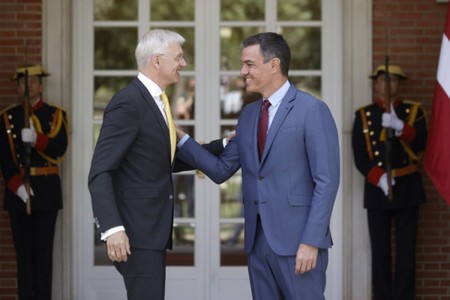
In a former article, we have followed the reaction and trends in the Balkans towards Russian’s invasion of Ukraine. But what about the Baltic states, another territory impacted by Putin’s plans? We leave for a different occasion the prospects around energy that the Riga and further neighbouring governments need to manage and take here a different approach; namely, that of how Moscow’s political influence is exerted in Latvia during the war.
Let us first take a look at language spread in the country, in order to assess whether there is a link between Latvian/Russian and their respective political alliances. Russian is spoken at home by about 37% of the population, predominantly on the south-east part of the country, near the border with Russia and Belarus, as well as by those Russians that resided in Latvia after the fall of the USSR.
Russian state-sponsored disinformation is addressed mainly to Russian-speaking population in Latvia. Furthermore, Latvia’s Russian-speaking population has strong ‘pro-Kremlin’ links. We can thus conclude that language identity exerts an attached alliance with the attacking nation in the minds of a very significant part of those residing in the Baltic state, despite the fact that the majority remains with the ranks of pro-Western official strategy.
On the other hand, there is a strong negative notion towards Russian-language speakers due to the language being linked to Russian state representation. In fact, there have even been limitations on the use of Russian in public life, a means used by the Latvian government to discourage demographic fuelling of propaganda coming from the exterior.
But such tactics can also backfire and reinforce the internal cohesion of anti-NATO sentiments on behalf of those opposing Prime Minister Mr. Krišjānis Kariņš. Cultural resentment and tensions between the two identities, Latvian-speaking and Russian-speaking, remain and collide, when an appeasement approach could be more favourable in the mid-term.
Against this background, Russia exerts its expertise on information warfare. Websites, social media and news sources have been supported by the Russian state to develop its regional expansion through non-military means. For example, “Diena”, one of the largest newspapers and news outlets in the country, serves as a channel to instil President Putin’s influence on the Latvian news landscape.
In order to defend itself and its member countries, NATO counts with its Strategic Centre of Excellence (NATO StratCom COE), established precisely in Riga in 2014 and creating cyber defence programmes from which the Latvian Ministry of Defence benefits. However, its strategy to minimise information warfare has so far fallen short of the Kremlin’s efficiency in this peaceful battle.
After the start of the war, the Russian independent broadcasting channel “Dozhd” moved its production to Latvia. Because of releasing some sympathetic comments in relationship with the Kremlin, the Latvian authorities decided to shut it down for endangering Latvian national security. This reflects the sensitivity of the psychological and news war fought not only on traditional battlegrounds, but also outside of Ukraine’s borders.
Fear is perhaps the feeling that Russia wishes to imprint within its target audience. Failure of the state to provide basic services to its citizens, inability of the Baltic countries to defend themselves, and the refusal of NATO allies to assist the Baltic countries in the case of a foreign invasion all belong to the key messages conveyed to the Latvian population.
Prime Minister Kariņš has asked Latvian residents to manifest more visibly in their support for Ukraine against Russia, to the point that he has warned them about the possibility of losing their legal status if they stay neutral. This can evidently threaten many residence permit holders, particularly those from Russia.
To say the least, the Russian-speaking population has felt that they are being treated with a special attention only when the situation called for it rather than keeping it a norm. Moreover, the protection of Russian speakers could provide the Kremlin with an excuse to follow through with its strategy of considering Latvia a target for influence.
Putin’s tentacles have also pointed out how the living cost has rocketed, in order to influence the public against supporting energy sector adjustments made by the Kariņš government. Plus, Russia portrays the West as morally degenerate; what many European Union countries regard as protection of human rights is considered an indication of moral decay from the East’s more traditional vision. As a matter of fact, more than a third of Latvians believe in a moral decay of Europe, according to a survey commissioned by the ECR Party.
Shortly after the Ukraine war broke, Latvia’s Minister of Foreign Affairs, Mr. Edgars Rinkēvičs, called President Putin a “hooligan with a knife”. To what extent this kind of blunt expressions by the head of diplomacy can increase support or rather erode trust in leadership is yet to be seen.
Source of the image: Leta.lv



 Subscribe
Subscribe